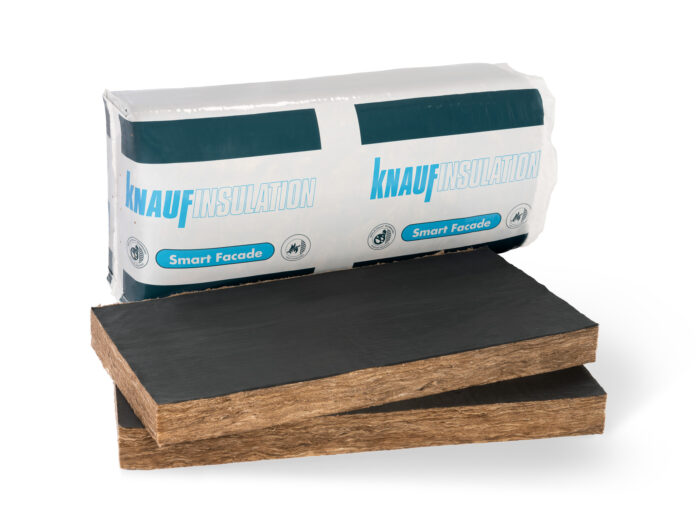In today’s fast-paced world of construction and architectural design, one constant remains — the need for practical, sustainable solutions that effectively address today’s challenges.
Modern architecture firms are tasked with providing optimal thermal comfort in buildings in a way that is aesthetically appealing, thermally efficient, and offers excellent fire protection. A crucial part of the solution to this issue is the implementation of ventilated facades.
Ventilated facade systems, otherwise known as double-skin facades or rain-screens, are a potent defence against the elements.
Made of two layers of different facades separated by an air cavity, the external cladding of ventilated facade systems provides primary protection against rain and wind, with the ventilated air corridor simultaneously working to eliminate residual moisture, safeguarding the building’s integrity.
The same design that provides moisture protection also offers substantial thermal benefits. Ventilated facades help to reduce the amount of heat buildings absorb in hot weather and retain warmth during cold weather, resulting in lower reliance on heating, ventilation, and air conditioning (HVAC) systems.
The pursuit of sustainable construction practices is an ever-evolving journey. This has paved the way for innovative insulation solutions that further improve the efficiency and effectiveness of ventilated facades.
One innovation is the new Smart Facade system, developed by leading sustainable glasswool manufacturer Knauf Insulation.
Robust solution
Smart Facade is part of a robust solution that offers improved energy efficiency, protection from external weather elements, noise reduction, and increased comfort.
Featuring an innovative wind-wash barrier, Smart Facade mitigates the impact of windy conditions while acting as the first line of defence against moisture.
In addition, Knauf Insulation’s advanced DriTherm technology provides a high level of water repellence, extending durability and enhancing moisture resistance.
Importantly, the Smart Facade’s manufacturing process demonstrates a strong commitment to sustainability. The glasswool product contains up to 80% recycled glass, and is made with Knauf Insulation’s patented ECOSE technology, a bio-based binder that contains no added formaldehyde.
This state-of-the-art glasswool binder also has 70% less upfront embodied carbon than traditional mineral wool products, and has also received a Global GreenTag Green Rate Level A certification, making it an environmentally-friendly option for architects and designers looking for sustainable materials.




